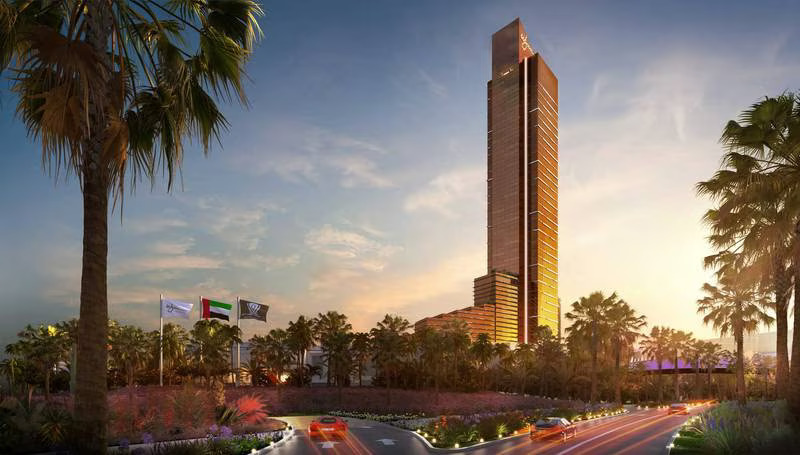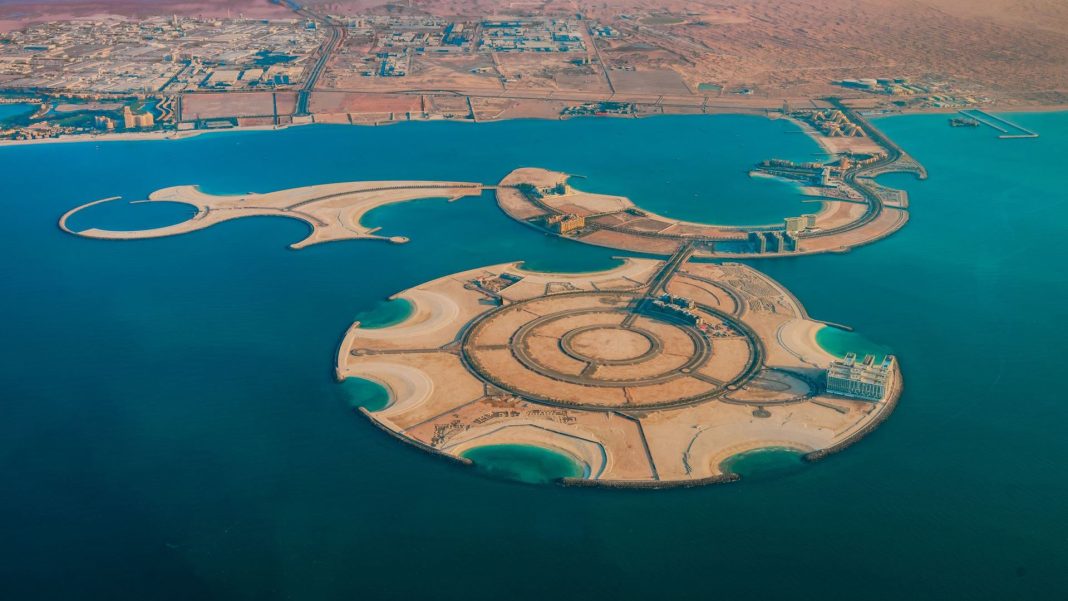As a wealthy nation with a growing population and a reputation as a popular tourist destination, the United Arab Emirates (UAE) possesses significant growth potential in the gaming sector and major players from Asia and Las Vegas are likely to get a piece of the action. UAE-based lawyer Moses Charles Kivuna, breaks down the possible restrictions and restrictions for investors.
Despite the international support, the corporate commercial lawyer does not expect that commercial gaming regulations will be introduced in the UAE before the end of 2023.
The UAE have recently taken a decisive step towards the legalization of gaming in the country by creating a General Commercial Gaming Regulatory Authority (GCGRA) headed by Jim Murren, former chairman of the American Gaming Association and late CEO of MGM Resorts International.
A 2023 report by Bloomberg Intelligence estimates that the UAE could generate up to $6.6 billion in gambling revenue annually, potentially surpassing Singapore.
“The future of commercial gaming in the UAE is indeed very bright. The establishment of the GCGRA and the Wynn Resorts project are clear signs that the UAE is serious about legalizing commercial gaming. The sector also has the potential to create jobs and boost the economy. Investors and other gaming establishments typically employ a large number of people, and they can also attract new businesses to the area,” the Senior Associate at law firm Yungo Law told AGB.
Kivuna highlights that the UAE as a wealthy nation with a growing population and a reputation as a popular tourist destination possesses significant growth potential in this sector, with any future gaming industry likely to attract both local residents and tourists alike.
“I definitely see major players from Asia and Las Vegas coming into the UAE to compete for this overly ripe market. This is very indicative with the already existing entry, in 2022, of the Las Vegas-based casino giant Wynn Resorts – that looks to build an integrated resort that will include a casino.”

Gaming operator Wynn Resorts announced in 2022 its plan to establish an integrated resort (IR) with a casino in the emirate of Ras al-Khaimah. Preliminary construction work has begun on Wynn Al Marjan Island, which is set to open in 2027.
Still, the UAE-based lawyer underlines that it is “possible but unlikely” that commercial gaming regulations will be introduced in the UAE before the end of 2023.
“The GCGRA has only recently been established, and commercial gaming legislation is still in the early stages of development. Relevant authorities are currently publishing consultation papers and seeking stakeholder input. The GCGRA is already operational and is working on developing a regulatory framework for the sector,” the lawyer points out.
However, according to Kivuna, the UAE government is taking a cautious approach to rolling out commercial gaming and may need more time to develop and finalize the federal law, address any public opposition, and finalize the implementing regulations, which make it difficult to say for sure whether or not regulations will be introduced before the end of the year.
“The government’s commitment to developing a world-class commercial gaming industry suggests that it is moving with a sense of urgency,” he notes.
“The GCGRA is already operational and is working on developing a regulatory framework for the sector.”
A phased approach
Kivuna also considers that the development of the commercial gaming sector in the UAE is expected to follow a “gradual, phased approach” with UAE authorities likely to proceed cautiously to ensure responsible growth and minimize potential social issues that may arise.
“This approach may involve the legalization of a national lottery and casinos within integrated resorts in its initial phase, followed by the possible legalization of other forms of gambling, including online gambling and sports betting, in subsequent phases,” he states.
“In response to the industry’s development, an influx of funding is anticipated for social programs, counseling services, and other important initiatives aimed at mitigating potential negative impacts.”
The lawyer lists a series of potential restrictions that the UAE government may place on the commercial gaming sector as it develops, with specific regulations ultimately dependent on the regulatory framework established by the GCGRA.

According to Kivuna, future restrictions could include the following:
- Strict Licensing Requirements: Investors and potentially individual customers may be required to obtain licenses from the GCGRA to operate or participate in commercial gaming activities, similar to the licensing process for alcohol sales and purchases in the country.
- Age Restrictions: Punters are likely to have an age restriction, typically requiring them to be at least 21 years old, to participate in gaming activities.
- Segregation of Gaming and Hotel Operations: To mitigate the risk of gaming addiction and social problems, investors may be obligated to operate gaming facilities separately from hotels or other establishments.
- Restrictions on Credit: The use of credit for gambling may be prohibited to prevent excessive financial risks for players.
- Limits on Betting Losses: Punters may face limitations on the amount of money they can lose within a specified time frame to promote responsible gaming.
- Time Limits: To prevent excessive gaming sessions, players may be restricted to spending a set amount of time on gambling per day or week.
- Content Restrictions: The government may impose restrictions on the types of games that can be offered, potentially banning games deemed excessively violent or exploitative.
- Limits on Advertising: Advertising of gaming services, particularly to minors and individuals with a history of delinquency, may be subject to restrictions to minimize negative impacts.
- Exclusion of Certain Games: Specific games, such as slot machines or other potentially addictive forms of gambling, may be prohibited from the commercial gaming sector.
Kivuna also warned that various regulatory bodies beyond the GCGRA could get involved in the sector, including the Federal Tax Authority, immigration authorities, UAE Police, Central Bank of the UAE, Dubai Virtual Assets Regulatory Authority (VARA) and free zone authorities – like Abu Dhabi Global Market (ADGM)’s Financial Services Regulatory Authority (FSRA), and Dubai International Financial Center (DIFC)’s Dubai Financial Services Authority (DFSA), as well as local municipalities.
“This multi-agency approach is particularly relevant due to the intersection of gaming with technologies such as blockchain, AI, Web 3 developments (e.g., metaverses), cryptocurrencies, virtual assets, data protection, and cybersecurity,” he adds.

Pitfalls aplenty
The commercial lawyer also described the many possible obstacles and risks for potential investors in the future UAE gaming sector, which could include from government risk aversion, to security measures or tax law changes.
- Evolution of Regulatory Environment: The regulatory landscape is still evolving, with the Gaming Commission of the UAE (GCGRA) in its early stages of development. This brings uncertainty regarding specific regulations that will govern the sector.
- Government Risk Aversion: Expect a cautious approach from the UAE government, necessitating patience and adherence to strict requirements from investors.
- Potential Public Opposition: Some segments of the population may oppose gaming legalization due to religious or social concerns, particularly related to addiction and societal issues. Mitigation is possible through responsible regulation.
- Tax Law Changes: The industry may be subject to changing tax classifications. Investors should anticipate the implementation of a 5 percent VAT on services and a 9 percent corporate tax, incorporating these into their business plans.
- Stringent Security Measures: Investors and gaming establishments will likely face strict security requirements to combat crime, underage gaming, and safeguard data.
- Social Responsibility Programs: The implementation of social responsibility programs may be mandatory for investors to address gaming addiction and associated societal problems.
- Insurance Requirements: The government may require high insurance coverage to protect punters and businesses.
- Anti-Money Laundering (AML) Compliance: Strict adherence to anti-money laundering regulations is likely to be enforced to prevent financial crimes.
- Minimum Capital Requirements: Investors may need to meet minimum capital requirements to ensure financial stability and reduce the risk of business failure.
- Inspections: Expect unannounced inspections by the UAE government to verify compliance with regulations and consumer protection.























